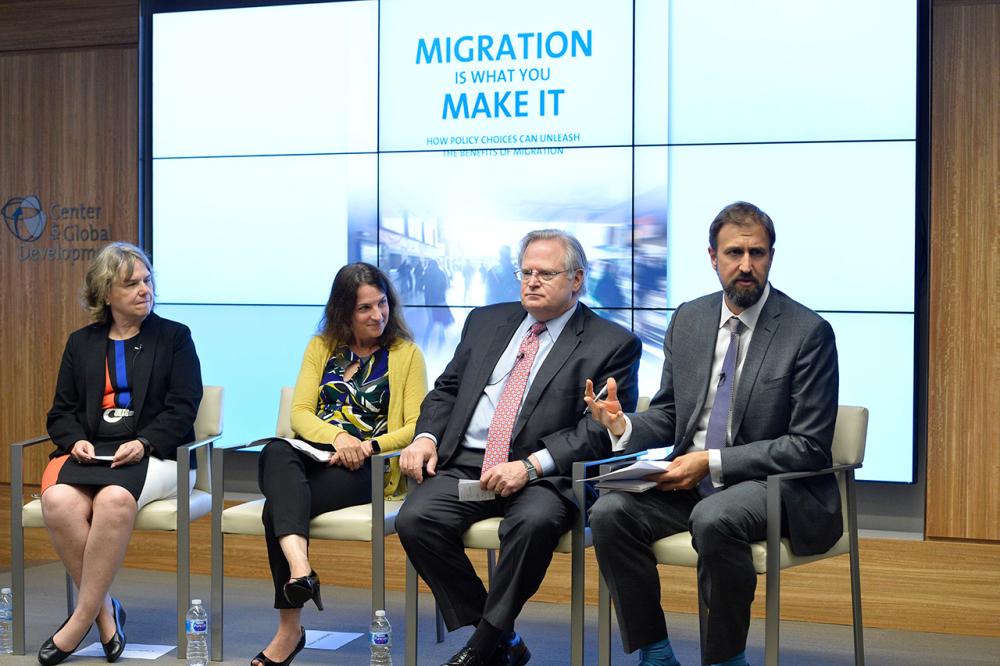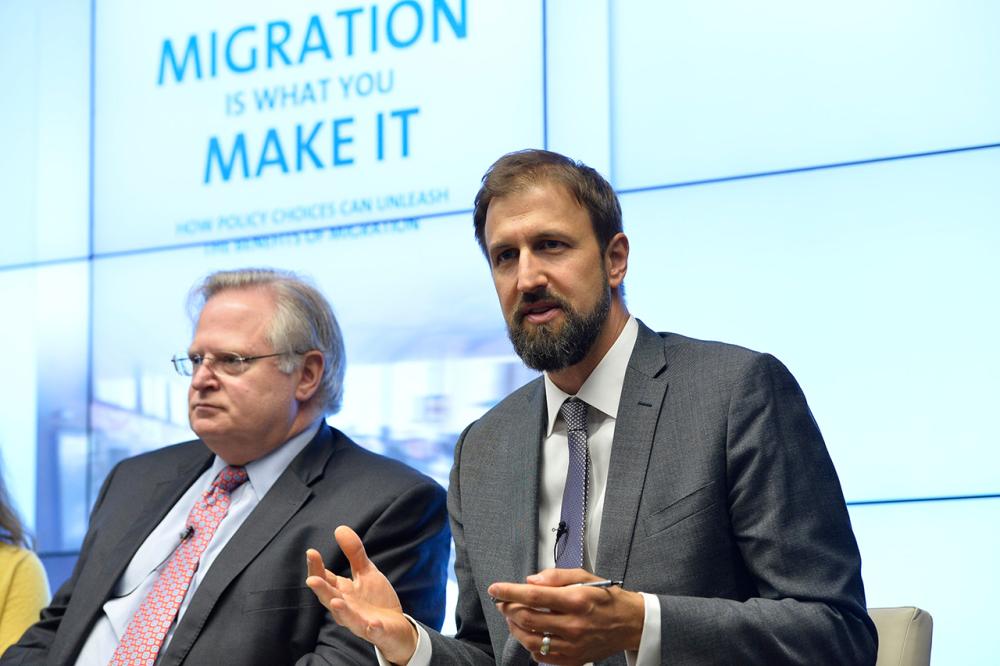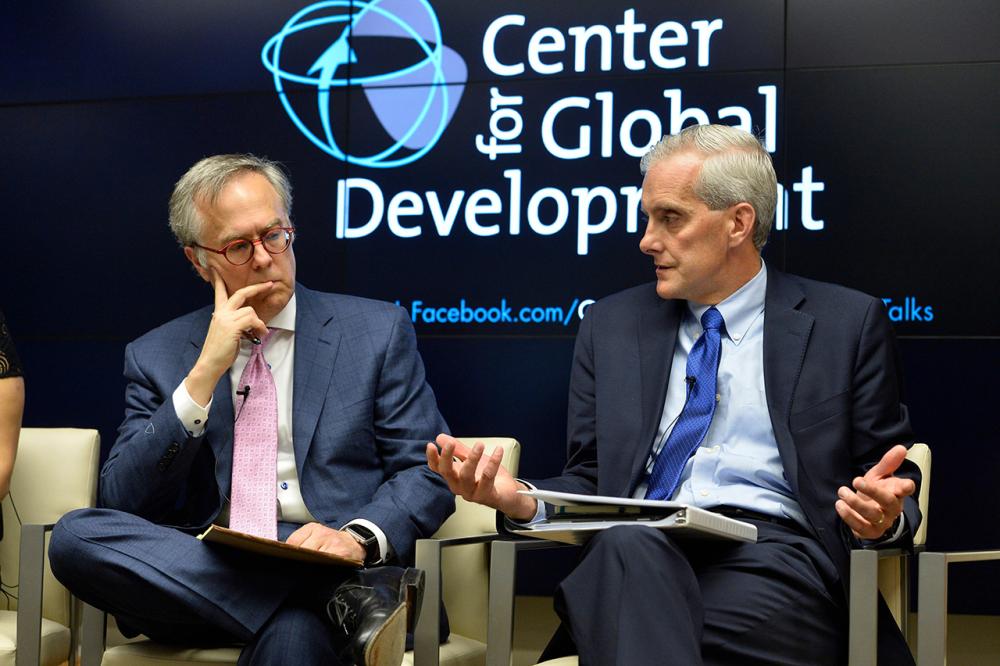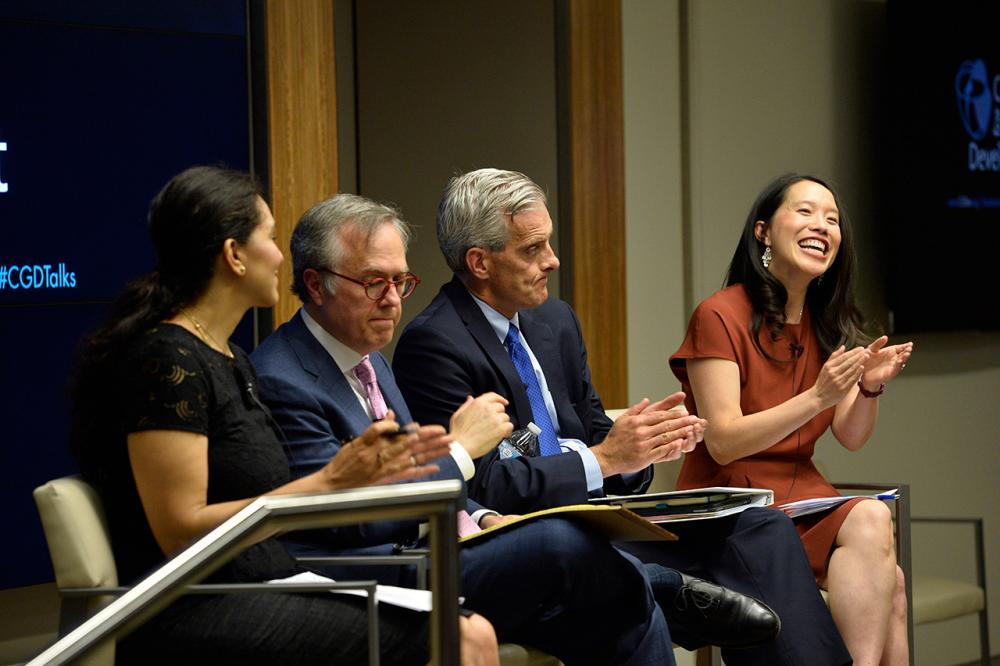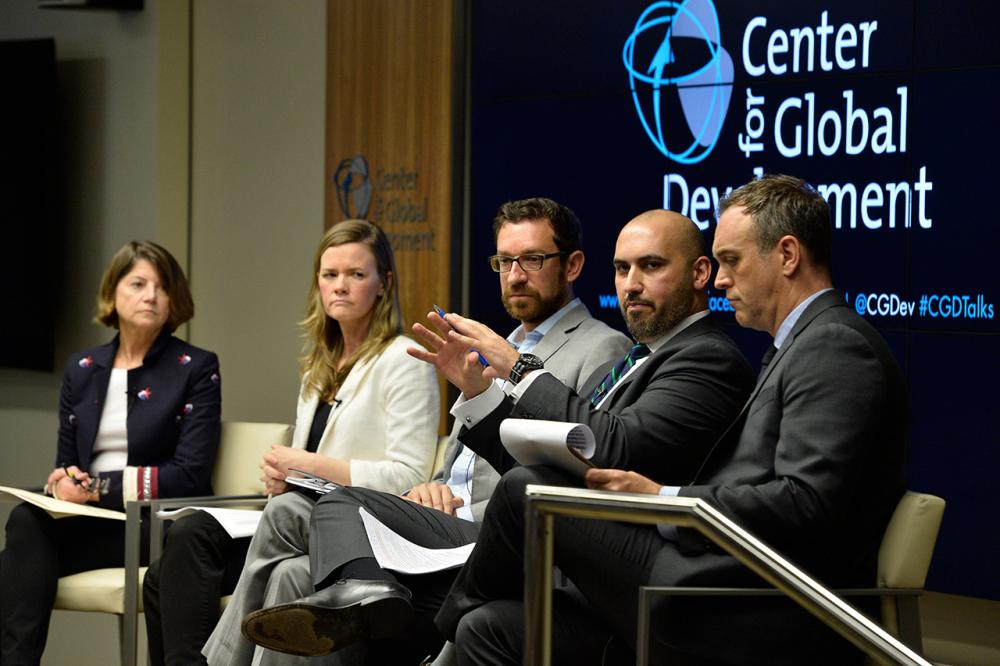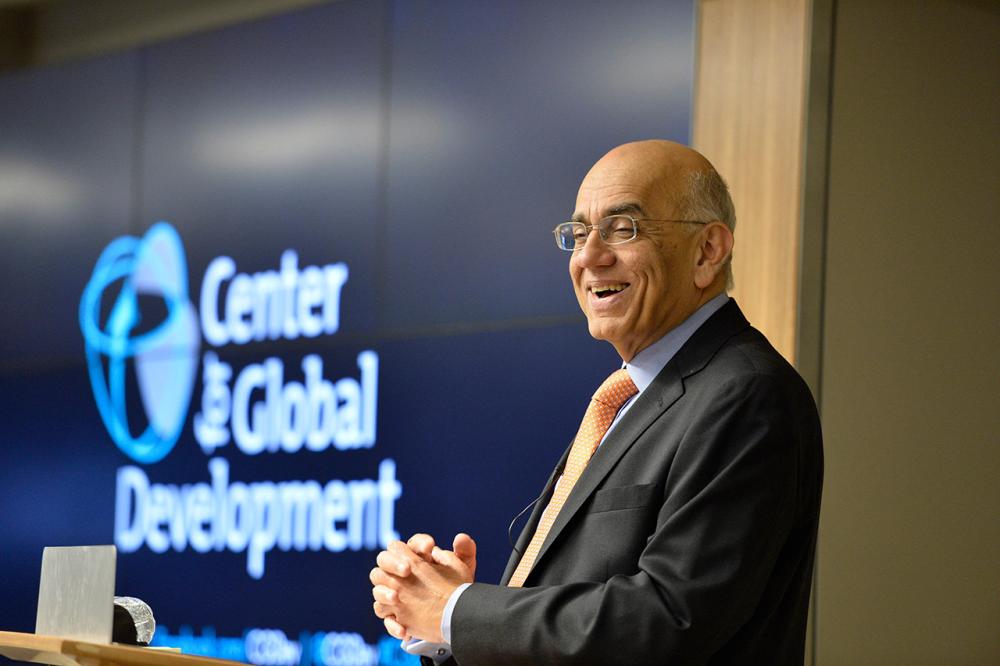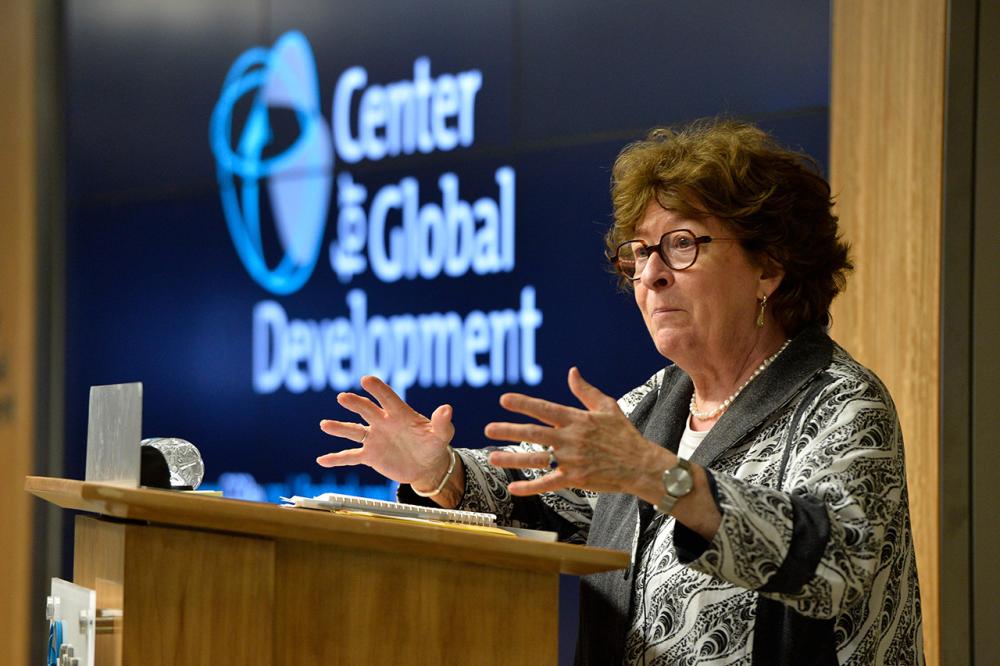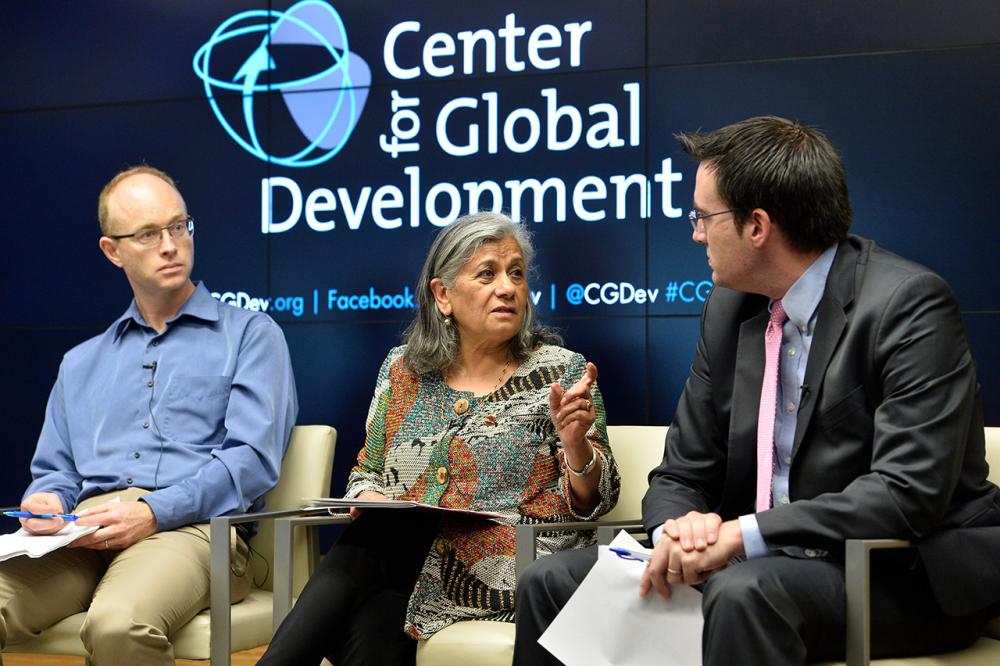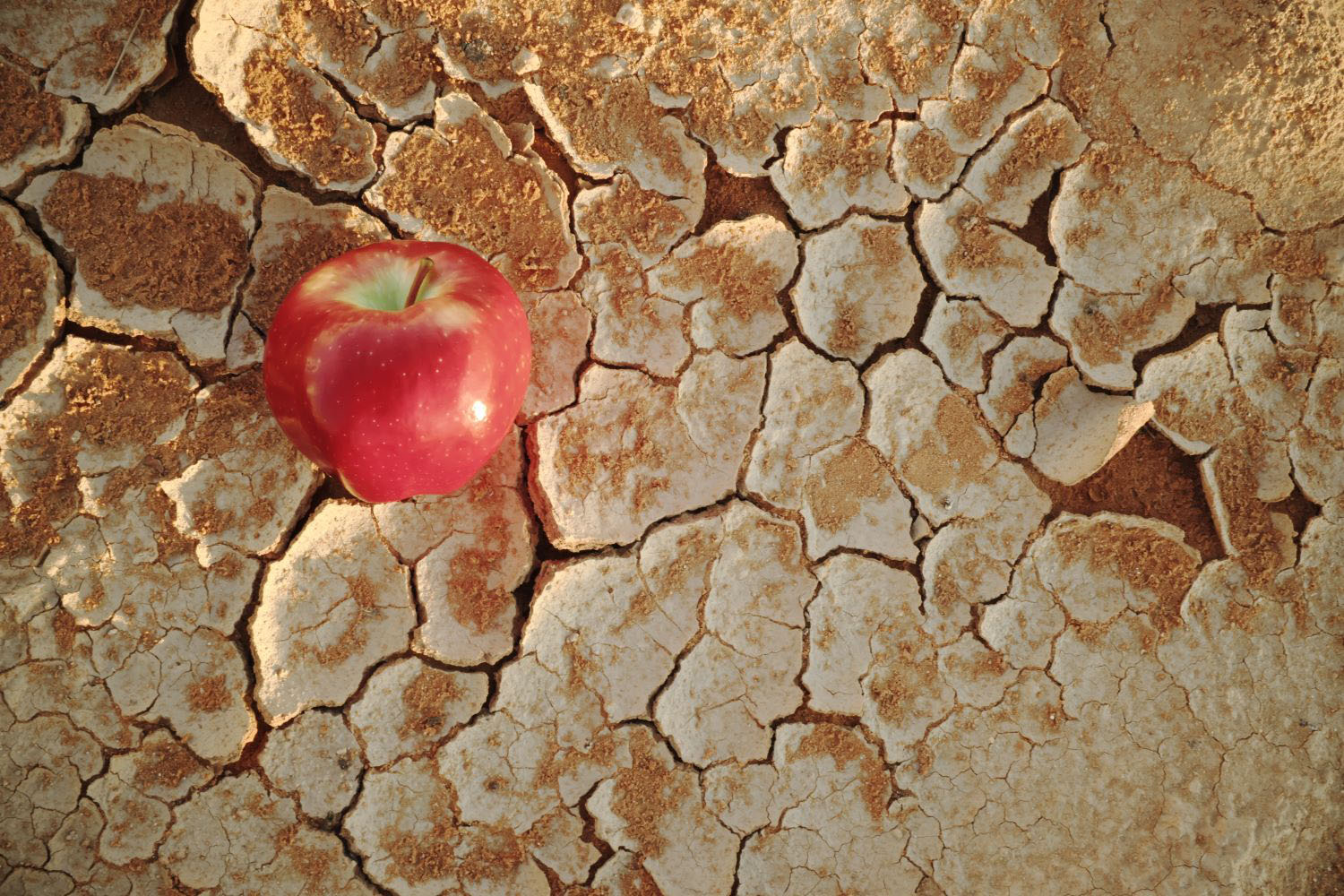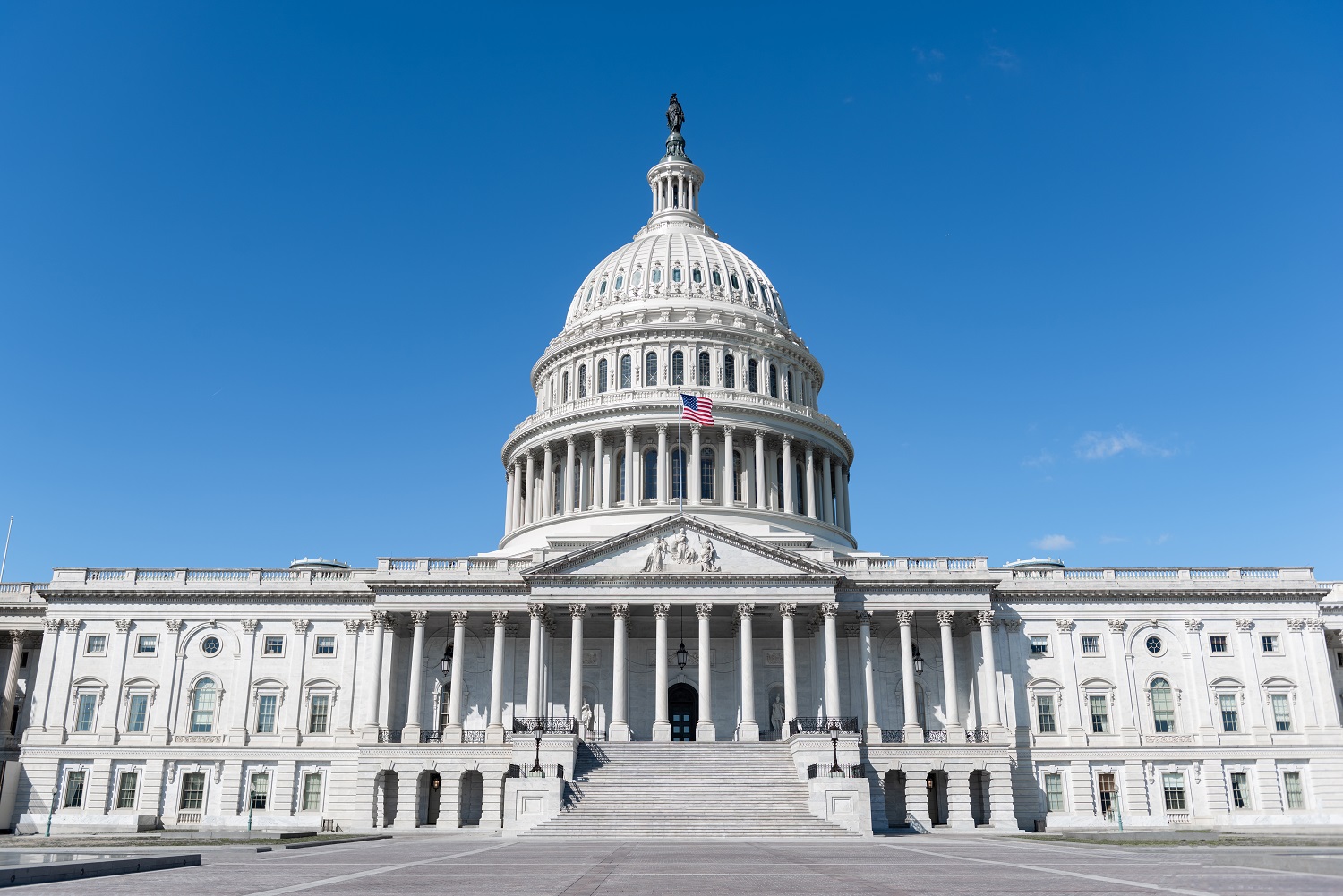Migration and displacement are among the greatest policy challenges of this century. Governance of the humanitarian system is at a crossroads, and key innovations shaking up traditional ways of working provide a window of opportunity for a broader, pragmatic reform effort. CGD has launched a new program built on these three pillars to propose evidence-based ways forward for policymakers and practitioners.
Last week, we kicked off the program with a day-long conference that convened a wide array of thought leaders, policymakers, and experts like Michael Gerson, Denis McDonough, Senator Ratna Omidvar, and many more across four panels. The UN Special Representative for International Migration Louise Arbour gave the keynote address, and we discussed issues ranging from humanitarian system reform to the consequences of shifts in US global leadership to innovations in refugee response and labor mobility. We also released two new papers that were discussed throughout the day: Migration Is What You Make It: Seven Policy Decisions that Turned Challenges into Opportunities andRethinking the Humanitarian Business Model.
If you weren’t able to join us be sure to check out some highlights of the day below. You can also watch the entire conference here.
Aspirations vs. Limitations—Can Humanitarian Reform Deliver Change?
Jeremy Konyndyk and his panelists discussed why coordination-centric efforts to reform the humanitarian system have failed to fully deliver on their aspirations and how deeper reforms to power dynamics, financing, and humanitarian governance will be important to enabling greater responsiveness, impact, and efficiency.
From left to right: Catherine Bertini, Fellow, The Rockefeller Foundation and former Executive Director of the UN World Food Program; Bathsheba Crocker, Vice President of Humanitarian Programs & Policy, CARE and former US Assistant Secretary of State for International Organization Affairs; Eric Schwartz, President, Refugees International and former US Assistant Secretary of State for Population, Refugees, and Migration; Jeremy Konyndyk, Senior Policy Fellow, CGD
Navigating Shifts in US Policy on Refugees, Immigration, and Humanitarian Crises: Costs, Consequences, and Opportunities
Cindy Huang and her panelists unpacked the shifting landscape of US rhetoric and policies on refugee resettlement, immigration, and humanitarian aid. The discussion focused on the potential consequences of these trends and how policymakers and the public can engage effectively in difficult times.
From left to right: Nazanin Ash, Vice President, Public Policy and Advocacy, International Rescue Committee; Michael Gerson, Columnist, Washington Post and former Director of Presidential Speechwriting; Denis McDonough, Senior principal, The Markle Foundation and former White House Chief of Staff; Cindy Huang, Co-director of Migration, Displacement, and Humanitarian Policy and Senior Policy Fellow, CGD
Responding to Protracted Displacement: Innovation in Challenging Times
Daniel Beaulieu and his panelists discussed how innovative partnerships and responses by the private sector, host countries, and refugees themselves are moving forward in challenging times. They focused on the importance of new models that offer sustainable opportunities for refugees and hosts, and discussed how to inspire further innovative action at individual, program, and policy levels.
From left to right: Mary Louise Cohen, Co-founder, Talent Beyond Boundaries; Jennifer Holt, CEO, Building Markets; Gideon Maltz, Executive Director, Tent Foundation; Feras Momani, Director, The Jordan Compact Management Unit, Ministry of Planning and International Cooperation; Daniel Beaulieu, Chief Content Officer, News Deeply
Keynote Address
Special Representative Louise Arbour discussed the state of play for international migration policy and governance. The Global Compact for Migration is a critical agreement toward better migration governance and partnerships for the decades to come. In her remarks, she stressed the importance of understanding the relationship between migration and development and noted that migration can be a vehicle for development, and that that relationship should be considered foundational in migration policy.
Migration Is What You Make It: How Policy Choices Shape the Benefits and Costs
Michael Clemens and his panelists discussed the current landscape of migration policy, the Global Compact for Migration, and important policy innovations governments should draw on as they seek to implement better migration policy. They also underscored the idea that there is no inherent effect of migration, and that it is policy choices that determine whether migration’s effects are positive or negative.
From left to right: Louise Arbour, UN Special Representative for International Migration; David McKenzie, Lead Economist, Development Research Group, World Bank; The Honourable Ratna Omidvar, Senate of Canada and Co-Chair, World Economic Forum’s Global Future Council on Migration; Michael Clemens, Co-director of Migration, Displacement, and Humanitarian Policy and Senior Fellow, CGD
Image Gallery
Click the photo below to scroll through photos from the event.
Disclaimer
CGD blog posts reflect the views of the authors, drawing on prior research and experience in their areas of expertise. CGD is a nonpartisan, independent organization and does not take institutional positions.


